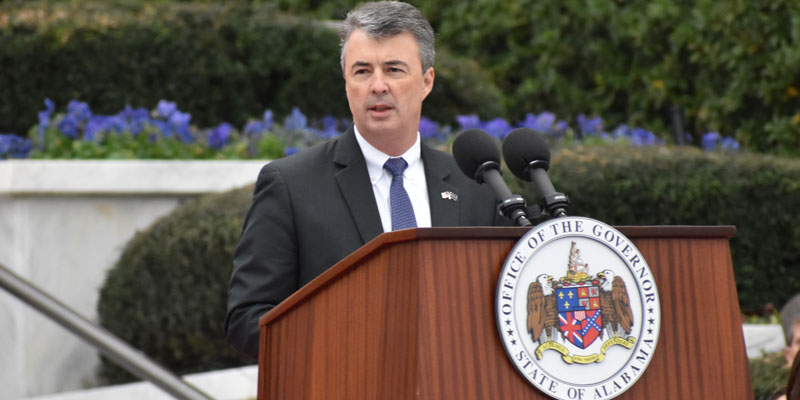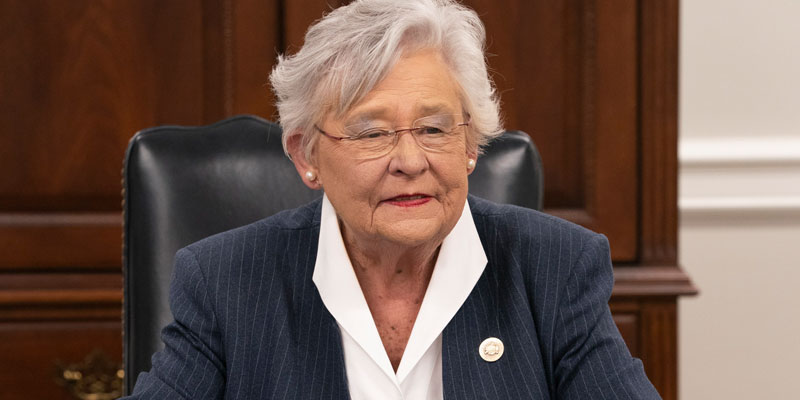MONTGOMERY – The Alabama Legislature’s negotiations over two anti-vaccine discrimination bills spilled over into late Thursday night as lawmakers attempted to reach agreement on the hotly-contested legislation.
House Debate
The Alabama House of Representatives on Thursday took up debate on two bills relating to combating vaccine discrimination which passed the Senate earlier this week.
Upon gaveling in shortly after 10:00 a.m., House Speaker Mac McCutcheon (R-Monrovia) announced that the body would break for recess in an apparent attempt to gauge where the House GOP Caucus stood on the bills.
After a brief recess, the House gaveled back in at 12:30 but once again broke for recess for an additional hour and a half. Prior to recessing, McCutcheon indicated his intention to address the bills in a timely manner and complete the legislature’s special session prior to the day’s end.
During the break in action, House Republicans discussed specifics relating to the two pieces of legislation.
Senate Bill 9, as passed by the upper chamber, provided employee exemptions for religious and medical reasons to vaccination. Senate Bill 15 strengthened the state’s ban on vaccine passports by authorizing the attorney general to pursue legal recourse against entities found to be in violation of the law.
The first piece of legislation up for debate was Senate Bill 15. However, the bill was temporarily carried over so the body could first consider Senate Bill 9.
A substitute bill was offered as replacement for Senate Bill 9, which contained alterations to State Sen. Chris Elliott’s (R-Daphne) original legislation.
State Rep. Mike Jones (R-Andalusia) spearheaded efforts to pass the bill in the lower chamber and spoke on the legislation’s behalf on the House floor. In detailing the bill, Jones outlined a significant change to the bill’s language. A proposed change offered in the substitute was to require a health care provider’s signature attesting to a worker’s claimed medical exemption to vaccination.
Additionally, the original bill charged the responsibility to appeal a vaccination exemption on the employer. Under the substitute bill, the responsibility would instead fall upon the employee in the event the employer dissented with the exemption.
House Democrats conveyed concerns which largely mirrored those articulated by the minority party in the upper chamber. Democrats asserted that the bill would allow workers to claim exemption without holding a “sincerely held religious belief.” However, the supermajority Republicans hold in the House overwhelmed Democrats’ objections.
As the House GOP stood united in the effort, the substitute bill passed the House by a vote of 67-23 with two abstentions.
While debating State Sen. Arthur Orr’s (R-Decatur) Senate Bill 15 in the upper chamber earlier this week, lawmakers amended to make the bill’s language COVID-specific. The House, due to senators requesting the chamber to remove the amendment over concerns of unintended consequences, opted to have the legislation apply to all vaccines rather than just COVID-19 vaccines.
To accomplish this, an amendment was needed to alter language back to the original wording of the vaccine passport ban. The amendment was adopted and passed 63-27.
Upon the amendment’s passage, Senate Bill 15 swiftly passed the body by a vote of 65-23. Both pieces of legislation as altered made their way to the upper chamber for concurrence and final approval.
Senate Debate
As the two bills arrived in the Senate, each piece of legislation was met with a motion of nonconcurrence from each’s respected Senate sponsors. The bills then went to conference, where designated legislators met to work toward an agreement.
Lawmakers convened the conference committees around 8:30, where both bills emerged slightly changed from their original versions.
Senate Bill 9 remained largely unchanged. Under the altered guidelines, should an employee’s request for exemption be denied by the employer, the worker has seven calendar days to appeal to the Alabama Department of Labor (ADOL).
Additionally, an employer must continue to compensate the employee whose request has been denied for seven calendar days or longer, if the worker has appealed to ADOL. In the event that the department upholds the denial, the worker can then appeal to a circuit court. During this time period, the employer must continue to pay the employee while under court consideration.
The bill will sunset in December 2023 with the hope that the threat of the pandemic will cease to exist by that time.
Senate Bill 15 emerged from conference substantially changed from its original intent. Upon discussions, the bill was altered to remove language authorizing the attorney general to pursue civil action against entities that violate the state’s ban on vaccine passports.
The legislation was largely altered into a bill dictating that no student minor should receive a COVID-19 vaccination without parental consent, which was originally included. The bill states that “[t]he attorney general may commence a civil action to enjoin a threatened or continuing violation” of the law.
Both bills passed their respected conference committees and went to the Senate for consideration, where they met final approval from the upper chamber. Shortly thereafter, the House concurred with the Senate and passed each bill.
Conclusion of Special Session
Elliott hailed the passage of Senate Bill 9, saying out of all the issues the legislature debated that the “most overarching” issue was “a balance between being pro-business and being pro-freedom, religious liberty…” He further indicated that the legislature “struck as best as possible that balance.”
State Sen. Chris Elliott (R-Daphne) asserted that the legislature attempted to pass well-balanced legislation aimed at protecting workers’ freedom as well as ensuring businesses aren’t harmed. #alpolitics pic.twitter.com/iZgH269tnC
— Dylan Smith (@DylanSmithAL) November 5, 2021
Senate President Pro Tem Greg Reed (R-Jasper) touted the legislature acting on the concerns of Alabama workers who fear Biden’s vaccine mandates will have an adverse impact on their financial well-being.
“The Biden administration’s vaccine mandates are a reckless federal government overreach that infringe on Alabamians’ liberty and freedom of personal choice, and could cause significant economic harm to Alabama and Americans across the country,” stated Reed.
The Senate leader went on to state his support of Attorney General Steve Marshall (R-AL) in his effort to challenge Biden’s edict in court. He further asserted that workers “need help now,” citing why lawmakers took action.
“The legislature has heard from concerned Alabamians across our state who are desperately seeking protection from these unconstitutional mandates, and we have answered with a legislative result to prevent Alabamians from having to make a choice between getting a vaccination they don’t want and maintaining their livelihoods and personal freedoms,” he added. “I strongly support the Attorney General’s efforts to fight this in the courts, but Alabamians need help now, and the legislation passed today gives Alabamians this much-needed relief.”
In response to the legislature’s passage of the two anti-vaccine discrimination bills, the office of Gov. Kay Ivey (R-AL) stated that she would review the bills with the intention of signing them into law on Friday.
The Alabama Legislature now stands in adjournment, marking the end to this week’s special session.
Dylan Smith is a staff writer for Yellowhammer News. You can follow him on Twitter @DylanSmithAL













